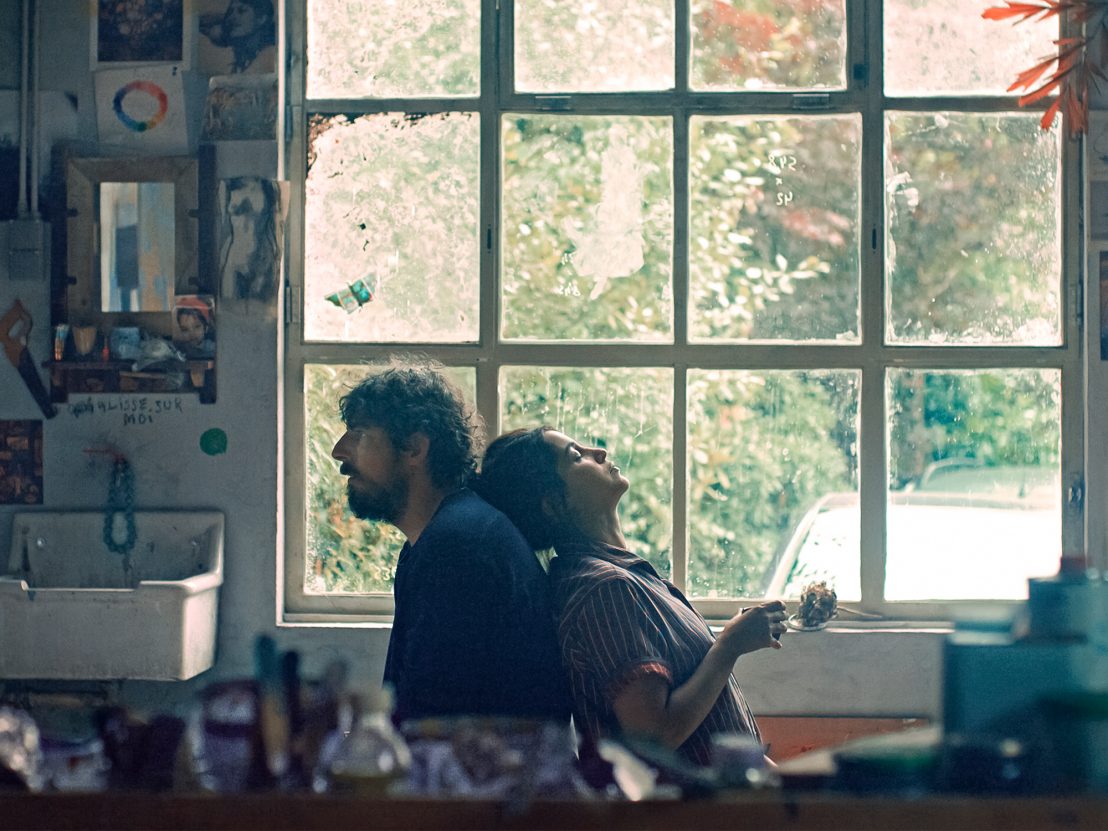Big-screen depictions of mental health often lose nuance in favor of exaggerated tropes, inaccurately representing many experiences living with specific conditions. This is certainly the case with bipolar disorder, filmmakers usually showing individuals with the condition in a sustained state of mania rather than the more common occasional episodes. In its earliest stages, Joachim Lafosse’s The Restless, the final film to screen in competition at this year’s Cannes, feels like it’s going to offer a refreshing corrective to some of the more harmful film narratives about bipolar.
This first act introduces us to Damien (Damien Bonnard), a successful painter struggling to maintain a sense of calm while on holiday with his wife Leïla (Leïla Bekhti), and their children. His disorder is characterized by a state of underplayed restlessness—the desire to always be cooking, swimming, often going days without sleep because of his constant need for activity. He sometimes pulls potentially harmful stunts—e.g. leaving their young son to sail a hired boat out of a sudden urge to swim back to shore—but the family has learned to adapt to these and get him help when they do happen.
Damien and Leïla’s is a healthy relationship. Though not without arguments, there’s little sense his condition will tear them apart or stop him being a good father. (Whenever he does need to go to the psychiatric ward, Leïla is waiting outside.) It’s an opening stretch less reliant on big-screen tropes, more illuminating about the long-term effects living with this disorder has on a family; there’s no suggestion that, like in a film such as Silver Linings Playbook, a fulfilled romantic and family life proved to be a necessary ailment to his condition. It’s something they have to live with, and for the most part it only affects them in small ways.
Unfortunately this unsensationalized portrait only sustains the drama for so long. As the film progresses, Lafosse starts utilizing several tiresome “tortured genius” tropes to illustrate the relationship between Damien and his artwork, with Bonnard’s performance relying increasingly on specific behavioral tics as the story progresses. One prolonged sequence where we see Damien frantically painting, shortly after being given some minor pressure to stay focused on work, seems to immediately usher in the worst storytelling conventions when it comes to handling a real mental health issue. In the past, many have objected to bipolar disorder being reduced to sustained violent outbursts and argumentative aggression—unfortunately, during the film’s second half, a more nuanced portrayal blossoms into one depicted entirely through these characteristics. The main characters being named after the actors portraying them is about the only thing that rings true.
A wider issue with the drama might be contexts in which Lafosse frames a serious mental-health struggle. We’re introduced to father and son sailing in a secluded stretch of ocean (cinematographer and regular Lafosse collaborator Jean-François Hensgens emphasizing an almost impossible shade of blue), their holiday home featuring both a swimming pool and a kitchen straight out of a Nancy Meyers movie. Their actual home is something equally desirable—a hidden country manor nestled near a picturesque village.
Placing the drama in this setting, presumably to forge a “trouble in paradise” contradiction between narrative and location, only serves to have the opposite effect, often feeling uncomfortably aspirational in its depiction of upper-middle-class affluence. I was reminded of Harry Macqueen’s recent film Supernova, another well-intentioned work about dealing with long-term illness that stumbled in how much it wanted to function as a travelogue through England’s picturesque Lake District. It’s not that dramas about rich families learning to deal with traumatic conditions can’t be affecting, but framing their wider setting within such a light serves only as a distancing technique, at best some distraction.
The one potentially illuminating aspect of Restless‘ second half is the introduction of COVID to its narrative, and how people with long-term conditions have learned to adapt to a new normal characterized by increased social isolation. Naturally, the film stumbles here; face masks may be ever present in the second and third acts, but the only sequence directly about the pandemic has Damien enter a shop, maskless, to breathe on an elderly couple and buy the shop’s entire supply of cakes. It feels like a missed opportunity to find something revelatory in the midst of overly familiar, often uncomfortable tropes.
Certainly there have been worse screen portrayals of bipolar than The Restless, which is largely inoffensive despite its reliance on stereotypes. Instead it feels like a frustrating missed opportunity, consistently opting for melodramatics whenever it needs to seriously explore its subject matter.
The Restless screened in competition at the Cannes Film Festival.

